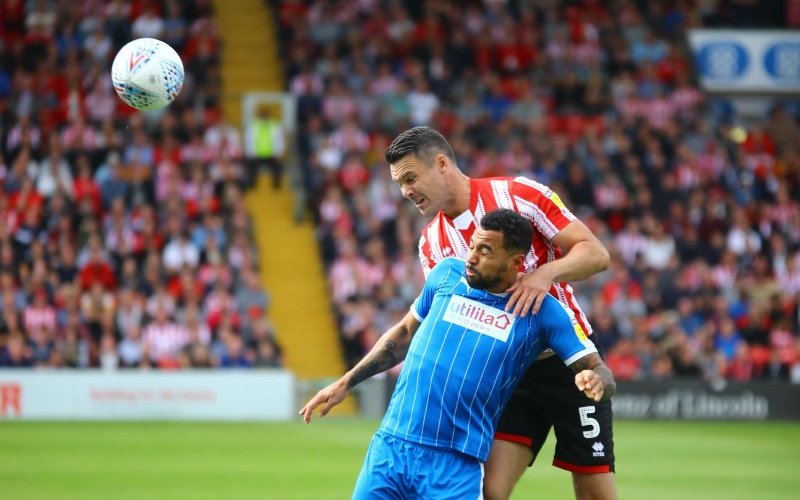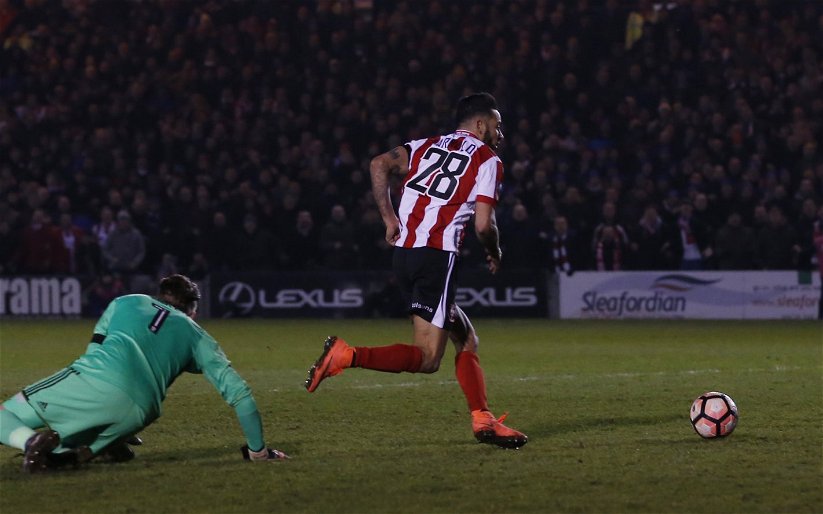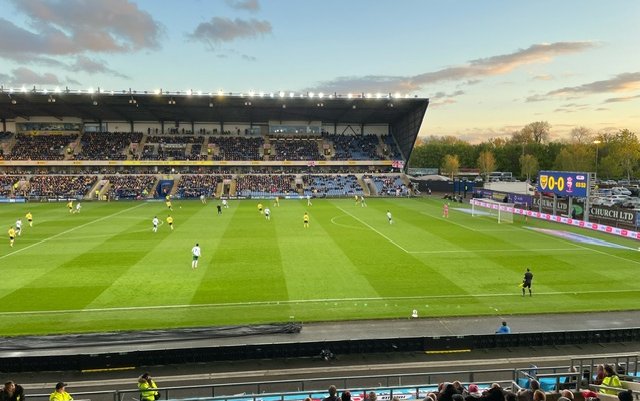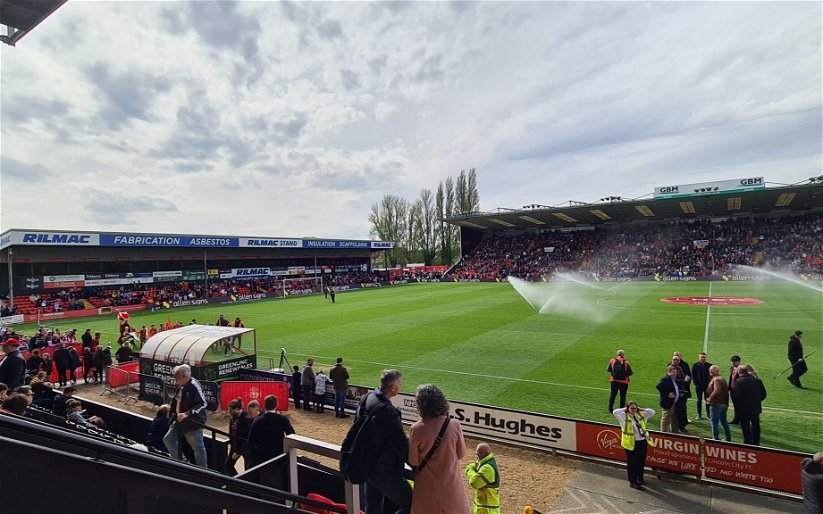The out-of-control money-minting juggernaut known as FIFA has pulled off some pretty deft tricks in recent years, and that is putting it extremely mildly. The governing body of world football has long been an embarrassment to the game it is supposed to regulate, counting financial scandals, FBI raids, criminal convictions, allegations of autocratic management and political infighting within its vast portfolio of self-humiliation. Not only that, FIFA has repeatedly damaged football as a spectacle by meddling with its rules to the point of crippling the flow of the game completely. Why would it choose to do any of those things, let alone all of them? Probably because it can, but corruption and incompetence have been at the heart of everything for a very long time.
Only last month, FIFA held the ceremony for The Best FIFA Football Awards 2018 in London. Not satisfied with giving the event a ridiculous title, the awards themselves served to highlight just how detached the organisation has become from reality. Quite why they decided to hold the awards ceremony for 2018 in September seems curious to begin with, considering the year is far from over. Apparently they have decided the football year runs from August to July, in which case The Best FIFA Football Awards 2017-18 would appear a more accurate title. The event was hosted by actor Idris Elba, who had chosen to wear a waistcoat featuring multiple images of Gareth Southgate. How bizarre is that on a scale of one to ten? Elba then proceeded to have a fine evening, stumbling over his autocue and watching sadly as balls of tumbleweed blew silently across the stage in response to his jokes. Even then, he was brilliantly upstaged by some of the players whose choice of clothing was – shall we say – eclectic.
And then we had the awards themselves. Liverpool’s Mo Salah came third in the voting for the best male footballer, yet for some reason did not appear in the World XI. The World XI did include Manchester United’s David de Gea, yet the individual award for the best goalkeeper went to ex-Chelsea runaway Thibaut Courtois. To compound matters, FIFA also saw fit to have four teams of runners-up, which qualifies as one of the most pointless exercises imaginable. Salah did have the consolation of winning the Puskas Best Goal award for his effort for Liverpool against Everton, yet that goal did not even win BBC’s Goal of the Month competition for December. Liverpool team-mate James Milner congratulated Salah by tweeting, “Congrats @MoSalah on your 7th best goal from last season winning goal of the year.” When even the players start poking fun, all credibility evaporates with the dry ice that inevitably opens these events.
Incomprehensible awards ceremonies aside, the problems run much deeper. Not many people will be able to tell you what the FIFA acronym actually stands for, although a brief search online indicates that most football supporters around the world do not hold the Fédération Internationale de Football Association in high regard. Suggestions include:
** Forever Interfering with Football Abroad
** Federal Investigations Frequently Appropriate
** Financial Inducements For All
** Fraud-Infested Football Association
and my own personal favourite
** Forever Implicated in Fraudulent Activities.
It is that last acronym that causes the main problem, and it is a significant one. There is no doubt at all that the extensive criminal investigation that has so far led to the arrest and conviction of two dozen of its high-ranking officials came as a huge shock to FIFA. Although no more than a rule-making body for a particular sport, FIFA apparently behaved as if it was above local and international law, entirely unaccountable to anyone including themselves. The original FBI investigation commenced in earnest in 2010, and has since separated into a number of threads around the world. Proceedings are far from over, and are expected to continue until at least 2022. That is some fraud case. The incredible fiefdom created by the disgraced Sepp Blatter should have been strangled at birth many years ago, yet football stood by and allowed it to happen. Some say that football may be as culpable as the incumbents themselves, although no one could have believed the degree of criminality involved.
On a more practical level, consider the influence FIFA has had on the rules of the game. In the last twenty or thirty years, its record of unnecessary interference is an extensive one. Exhibit ‘A’ is the notorious changes to the offside rule, causing confusion where none was needed. What was wrong with the simple requirement of having at least two defending players between the goal and the attacker? Simple. Now referees have to consider whether any given player was interfering with play, whatever that means, and there are even more rules in place to determine that. Complicated? Confused? Everyone else is. Football is supposed to be a simple game.
And then we have yellow and red cards. The system was originally introduced largely to clarify the referee’s decision for the benefit of the crowd, yet FIFA has since created a complex and lengthy list of ‘proscribed offences’ for which a yellow or red card must be awarded automatically. That represents a major change of perspective. Besides adding a nauseating number of extra rules for the referees to learn and implement, the process has handed unscrupulous players the means by which they can deliberately get opponents booked and sent off. A cheat’s charter, if you like.
In years gone by, referees were permitted to use their discretion in the running of each game, and some of them were extremely good at it. It allowed the game to flow naturally without becoming stymied by myriad irrelevancies, and referees would only book or send off a player when they felt a mark had been overstepped. A few weeks ago one of the satellite channels showed highlights of a First Division game between West Bromwich Albion and Manchester United from the late Seventies, and it was immensely refreshing: players got stuck in without fear of picking up a booking for a minor infringement, everyone accepted that it was a contact sport, and the referee allowed the players plenty of leeway. The result was a game that flowed beautifully.
In today’s game, the players know precisely for which ‘offences’ the opponent will receive a card, and they have worked out very devious ways of bringing it about. The result is a game at the highest level ruined by players inviting contact and flinging themselves spectacularly through the air, faces contorted in simulated agony, and waving imaginary cards at the referee like spoilt children cheating at Monopoly. What a fun spectacle that is. Only a truly inept organisation like FIFA could try to clean up the game by allowing the cheats to prosper. The referees have such an extensive set of rules to apply that they now reward almost every foul with a yellow card. That is ludicrous, yet how many dissenting voices have you heard in protest? The answer is one, and you will love the irony of it.
“But we’re getting so many sendings off…the referees have got this thing in their head that they’ve got to book everybody if it’s a foul.” – Joey Barton, September 2018
FIFA’s main objective in all of this seems to be to break the game down into a series of mechanical sequences that can be completely controlled by an increasing number of on-field and off-field referees and analysts, some of whom sit in a room several hundred miles away from the game itself. We used to have a referee and two linesmen, and the game actually worked very well with that. Now FIFA decrees that we must have a referee, two assistant referees along each touchline, two assistant referees behind the goals, a fourth official and a referee’s assessor sitting in the stand. Completely and utterly absurd. Let’s not mention VAR. Yet.
All of these people exist simply because FIFA has created and imposed so many petty rules that they can only be enforced by employing hordes of referees, assistants, video analysts and assessors to run every game. What they really do is ruin every game. Something has gone very wrong, and the consequences could prove significant.
We are told that football is in a golden age, and that we should all enjoy it while we can. That statement ironically contains a warning, and the cracks may just be starting to appear. Official figures from the Premier League show no such tendency, but a number of leading clubs are disclosing full houses when their grounds clearly have thousands of empty seats. Football has become ruinously expensive for the average football supporter: I wonder how many of Lincoln’s 6,300 season ticket holders have struggled to pay for them? Yet the admission price at Sincil Bank is dwarfed by the prices charged for games in the top flight. That is all very well, provided the product is worth the money. At Lincoln it definitely is, but could it be that an increasing number of supporters elsewhere no longer agree? Has lower division football actually become more watchable than the Premier League? That is an interesting proposition which may not be entirely untrue.
There is only so long that the public will spend its hard-earned money on any product, and the game of football has to wake up to the fact that it is by no means exempt. Every product has a shelf life, a natural cycle with a start and an end. Once that product becomes tired, customers walk away in droves, and history shows that public support for football is very cyclical. An increasing number of supporters are growing weary of Premier League theatrics; they are becoming tired of the belief that blatant cheating is all in the game. Our old friend Robbie Savage sums up the brainlessness of it all when he repeatedly uses the phrase, “entitled to go down”. As talented as many of the top players are, they are also able to ruin the game as a spectacle because FIFA put in place the building blocks that enable them to do so.
Quite how this state of affairs can be addressed is another question. Ideally it should be reversed: removing all the unnecessary rules and layers of complication with which FIFA has suffocated our game would make football a far more enjoyable spectacle for the paying spectator, but unfortunately, FIFA has no interest in him. Joey Barton now believes that only former players have the knowledge and experience necessary to judge red cards. He may well have a point, but he is also missing the point. The existence and application of the card system and its multitude of petty rules is not just part of the problem, it is the problem itself. And would you want Mr Savage judging others when he believes a cynical dive is perfectly acceptable? I rest my case.
Actually, it does not end there. Now we have the shambles of VAR to contend with, conceived as an unequivocal way to assist the referee in assessing marginal situations to arrive at the right decision. We are told that it is all in the interests of the game, that it promotes consistency and fair play. What it actually creates is yet another unnecessary level of complication, and another means by which the flow of a game can be interrupted. In the good old days of the Seventies, the football results started to appear on the Grandstand teleprinter at twenty to five, and Len Martin read out the classified check five minutes later. Now we are seeing games that linger beyond five o’clock. Over two hours to complete a ninety-minute football match? You have to be joking.
So where should football go from here? It is extremely doubtful that FIFA can ever restore universal confidence in its activities and regain a modicum of respect for itself as a body. It has been out of control and virtually unaccountable for far too long, resulting in a game that is almost unplayable on the pitch and riddled with corruption off it. With the complex criminal investigation into its activities set to continue for some years, it is entirely possible that further damaging disclosures will follow.
On that basis, there is only one solution: to disband FIFA completely, and create an entirely new governing body that is habitually transparent and devoid of empires, dictators, manila envelopes and deviant accountants. Most importantly, it must not involve any person from the current FIFA model at any level. After all, no surgeon in their right mind would transplant an organ from a sick patient.
It will never happen, of course, because the current FIFA organisation continues to wield far too much power and influence over the game. And it cannot be forgotten that certain organisations and individuals have benefitted massively from FIFA machinations. Sepp Blatter was very clever in how he structured his own personal support network throughout the football world, ensuring that he always had a wave of support sufficient to keep him in power when re-election time came around. Therefore, any vote for its abolition and replacement would surely be rejected. So we will be left with plaintive calls for reform, which of course will be determined and implemented by FIFA itself. And nothing will ever change because turkeys do not vote for Christmas.
So football is in a golden age. Enjoy it while you can.
Who did our members consider to be September’s star players?
Player of the Month is stand-in skipper JASON SHACKELL, oozing class in the heart of the City defence. Shackell is one of those vastly experienced players who not only turns in a fine personal performance, but also organises and encourages those around him. It is interesting to think that he would not have been here, had former captain Waterfall not jumped ship for Shrewsbury.
Second place goes to flying winger BRUNO ANDRADE, who must surely be receiving admiring glances from clubs higher up the EFL. League Two full backs are visibly terrified by the former Boreham Wood man, and that is after just two months. Quite how good he will be by the end of the season is anyone’s guess, assuming he is still here by then.
Third place goes to Mr Revelation TOM PETT, who appears a completely different player to last season. Pett is now starting to run games in midfield, drawing favourable comparisons with the likes of Glenn Cockerill and George Shipley. He is even making fans wonder whether we actually miss the departed Alex Woodyard at all, which is some achievement. Pett also takes over at the top of the Player of the Season rankings from Josh Vickers.
A special mention for John Akinde, who takes fourth place despite scoring just the one goal during the month. Two match-winning knock-downs against Macclesfield and MK Dons emphasised what a dangerous player he is at this level.
The average team score of 6.67 is marginally higher than August (6.56).
1. Jason Shackell 7.47
2. Bruno Andrade 7.42
3. Tom Pett 7.14
———————————–
4. John Akinde 7.00
5. Michael Bostwick 6.98
6. James Wilson 6.92
7. Josh Vickers 6.81
8. Kellan Gordon 6.69
9. Harry Toffolo 6.68
10. Michael O’Connor 6.62
11. Shay McCartan 6.57
12. Neal Eardley 6.48
13. Harry Anderson 6.43
14. Grant Smith 6.09
15. Matt Rhead 6.00
16. Sam Slocombe 5.94
17. Joan Luque 5.63
18. Lee Frecklington 5.58
19. Ellis Chapman 5.44
20. Bernard Mensah 4.98
21. Adam Crookes 4.31
Individual ratings by match:
Exeter: John Akinde 8.45
Mansfield: Michael Bostwick 7.43
Crawley: Jason Shackell 6.73
Macclesfield: Bruno Andrade 8.04
MK Dons: Jason Shackell 8.05
Cheltenham: Bruno Andrade 8.07
So where does that leave us regarding the current player of the season standings?
1. Tom Pett 7.126
2. Josh Vickers 7.123
3. Scott Wharton 7.03
Home Player of the Season
1. Scott Wharton 7.63
2. Bruno Andrade 7.31
3. Tom Pett 7.22
Away Player of the Season
1. Josh Vickers 7.45
2. Tom Pett 6.95
3. Jason Shackell 6.90
Player of the Month
August: Josh Vickers 7.33
September: Jason Shackell 7.47
Writer: Scotimp
Rip It Up And Start Again:https://t.co/BOsPhngTAG#ImpsAsOne #EFL
— Vital Lincoln City (@VitalLincoln) October 9, 2018
https://www.facebook.com/VitalLincolnCity/posts/1883013811734855



